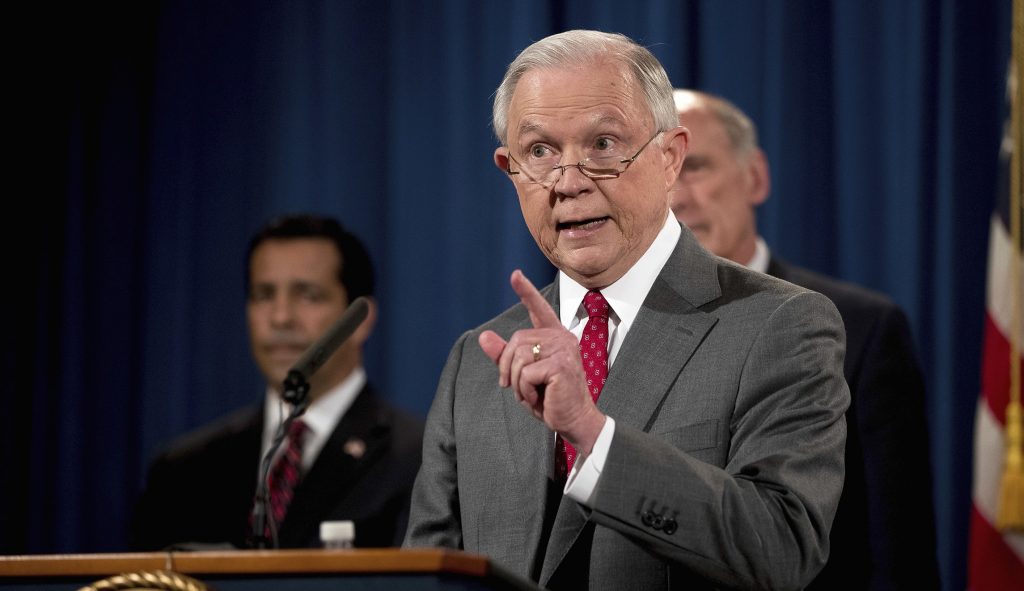Understanding the STATES Act, What it Gets Us and What it’s Missing
Let’s take some time understanding the STATES Act and what it would mean if the bill passes. STATES stands for Strengthening the Tenth Amendment Through Entrusting States, and just like the name suggests it is built around the 10th Amendment. The STATES Act would provide cannabis advocates and business nearly everything they are looking for, and it is garnering a tremendous amount of support around the country.
 The new bill, sponsored by the Massachusetts Democratic Senator Elizabeth Warren and the Colorado Republican Senator Cory Gardner, has all of the makings of a bill that the Senate can support. A companion bill is being pushed through the House of Representatives too, with bi-partisan sponsorship from Ohio Republican Representative David Joyce and Oregon Democratic Representative Earl Blumenauer. Together, the two bills are have the verbal support of President Trump, and coalitions have been formed by both a group of governors and mayors trying to push the bill through.
The new bill, sponsored by the Massachusetts Democratic Senator Elizabeth Warren and the Colorado Republican Senator Cory Gardner, has all of the makings of a bill that the Senate can support. A companion bill is being pushed through the House of Representatives too, with bi-partisan sponsorship from Ohio Republican Representative David Joyce and Oregon Democratic Representative Earl Blumenauer. Together, the two bills are have the verbal support of President Trump, and coalitions have been formed by both a group of governors and mayors trying to push the bill through.
First, the bill would not legalize cannabis nationally, not technically at least. It would remove cannabis from the Controlled Substance Act which means cannabis would no longer be a Schedule 1 substance or have any scheduling. The bill allows states to decide if and how they want to legalize cannabis. If a state wanted to maintain the illegal status of cannabis, it could. If one state wants to ban the smoking of cannabis, but allow edibles and vaping, they could do that too.
Lawmakers and voters in each state would have the right to decide for themselves how they wanted to construct regulations around the commercial sale of cannabis, (if they want it at all) how cannabis could be consumed legally and how companies could market it. If you drove across state lines from a very relaxed state that allowed you to smoke adult-use cannabis and possess three ounces into a state that only allowed vaping, you would be in violation of that state’s laws for possessing and smoking flower.
All consumers must be 21 years of age or older to purchase adult-use cannabis according to the new bill, unless the cannabis was prescribed by a doctor. Employees must be at least 18 years old to work with cannabis and there is notable room for states to create laws around safe work environments. There will be no cannabis sold at highway rest stops or truck stops.
 Hemp
Hemp
The STATES Act also removes industrial hemp from the Controlled Substance Act. Hemp has many different applications and would likely become an even larger industry than adult-use or medicinal cannabis. The strong fibers found in hemp are used to make clothing and have been used to make houses and even planes. While extracting CBD from hemp is a common use for the close cousin of marijuana, its other applications represent the potential for a much more scalable industry that could have a much larger economic impact here in the United States.
All cannabis banking problems would be solved by the STATES Act as well. Banks would be able to open accounts for cannabis businesses like any other business. It would solve the merchant service problems cannabis companies have been facing as well. The unfair tax code 280E that does not allow cannabis companies to write off even normal businesses expenses would go away as well.
The one missing element of the STATES Act is the social injustice issue. Sen. Cory Booker sponsored the Marijuana Justice Act last year that went to the heart of the racial disparities of minorities facing more arrests and convictions than white people. The bill does not talk about expunging criminal records for non-violent cannabis possession convictions, nor does it discuss granting clemency to those currently serving sentences for cannabis possession.
 Attorney General Jeff Sessions
Attorney General Jeff Sessions  Sen. Cory Gardner
Sen. Cory Gardner
President Trump stated to reporters that he is likely to support the bill and it is generally believed that the entire concept of the STATES Act originated from Attorney General Jeff Sessions’s roll back of the Cole Memo earlier this year. Sen. Cory Gardner, one of the bill’s sponsors became infuriated over Sessions’s move to scare states that have legalized cannabis and took it quite personally that he was targeting Colorado which legalized adult-use cannabis in 2014. What Sessions’s did not consider was that Gardner serves on the committee that appoints justice department nominees and had the pull to block all appointments, which he did for nearly five months. The blockade created such a problem for the justice department that President Trump contacted Sen. Gardner and while all details of the discussion have not been disclosed, it is reasonable to surmise that Gardner gained the support of the President for the STATES Act in exchange for lifting the blockade on the justice department nominees.
Like so much that happens on Capitol Hill, the dramatic shift is quite the story. Sen. Gardner may have played his cards just right and took full advantage of Jeff Sessions’s misstep with the Cole Memo. We will have to see if the STATES Act passes, but as of right now it is the closest the United States has gotten to ending the prohibition on marijuana.
Trump comments
Tags
10th Amendment280Ecannabis bankingcannabis newsControlled Substance Acthemp legalizationindustrial hempjeff sessionsmarijuana legalizationPresident TrumpSchedule 1Sen. Cory GardnerSen. Elizabeth Warrensocial injusticeStrengthening the Tenth Amendment Through Entrusting StatesUnderstanding the STATES Act


